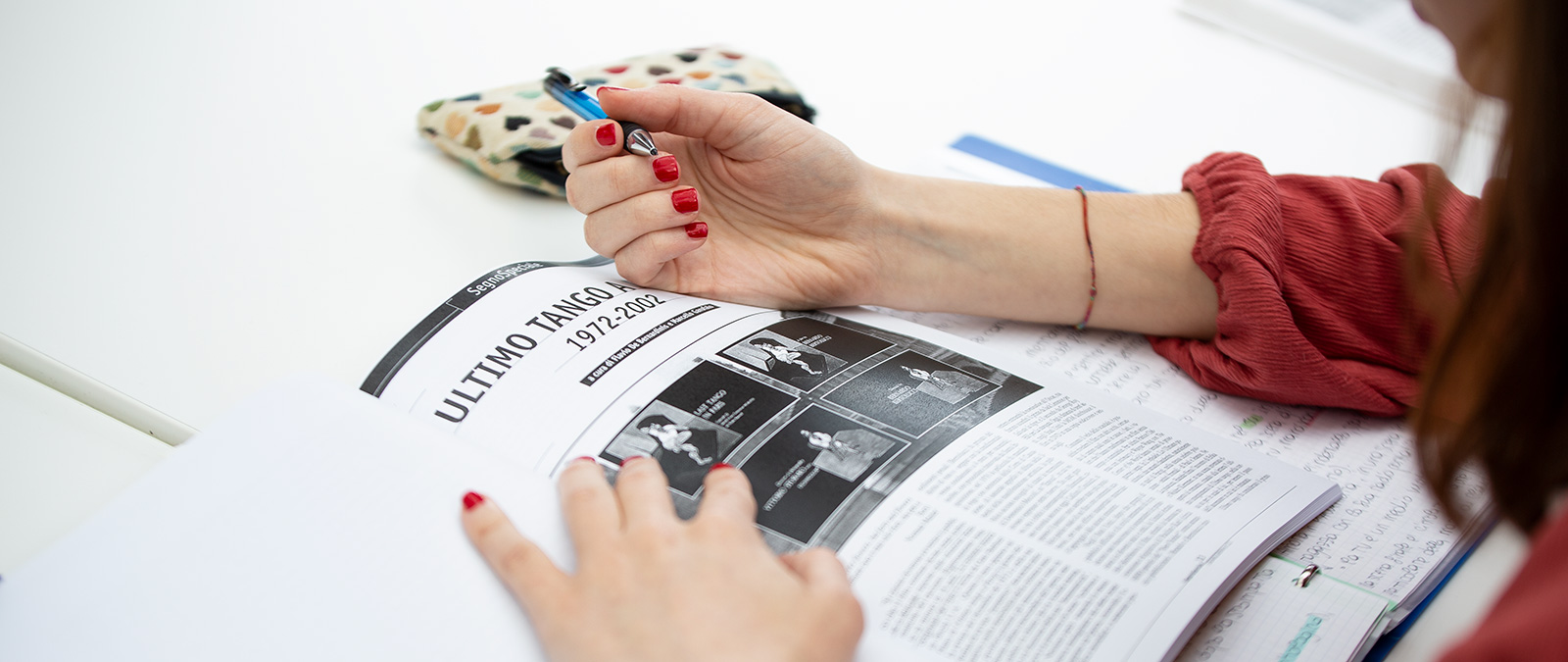
Master's Specialist Contemporary Museology and Museum Communication (On Line)
Scientific Director: Massimo Negri
Master's Specialist Contemporary Museology and Museum Communication (On Line)
Scientific Director: Massimo Negri
Rolling Enrolment
On Demand
Maximum 18 months
The study program consists of:
On line Modules planned by EMA experts and professionals with a documented international experience;
Optional attendance at international meetings organized by the European Museum Academy (costs and details will be specified on occasion of each event).
Each module consists of a video lecture , tutorials , a video conclusion and readings.
To pass from one module to the other you have to do an assignment which means a written text according to the task assigned, at the end a final essay is requested.
- Module 1: The Museum Environment
- Module 2: Multimedia Communication, Heritage and Museums
- Module 3: The XXI Century Museum
- Module 4: The social role of museums in contemporary society
- Module 5: Art as a factor of social and cultural local development
- Module 6: The Museum of the Future – a Participatory Museum
- Module 7: Sounds in Museums
- Final Assignment
CONTENTS
Module 1
The Museum Environment. Changes and Challenges in Europe.
Massimo Negri, Scientific Director of the Course, Milan.
The Module aims at providing the conceptual tools to analyze the exhibition environment which is at the core of the museum activities. Due attention is given to recent evolutions in the European museum scene with several practical examples.
Developing Exhibitions, D.Houtgraaf, M.Negri 2020. This book offers a methodology for developing an exhibition- or a museum for that matter - to anybody involved in this adventure. It was conceived having in mind the needs of professionals as well as students engaged in the museums and/or heritage sector. A specific assignment focused on this methodology is required.
Module 2
Multimedia Communication, Heritage and Museums
Onno Ephraim, Heritage in Motion Director, The Hague.
Multimedia narrative inspired by collections and heritage : an overview of international state-of-the-art video productions and installations in the heritage field. Materials from a variety of cases from all over the world are presented thanks to the archives of Heritage in Motion and Museums in Short contests.
Module 3
The XXI Century Museum
Wim van der Weiden, formerly director of Naturalis and founding member of the European Museum Academy, The Hague.
This Module deals with the most important issues of the museological debate emerged in the latest decades, as well as with some innovative aspects of museum planning with a special attention to scientific museums.
Module 4
The social role of museums in contemporary society.
Henrik Zipsane, formerly director of Jamtli Museum, Ostersund, currently EMA Foundation Managing Director, Landskrona
Lifelong Learning in Museums. The educational mission of museums beyond the formal education framework: conceptual approach and European practices. An attentive selection of international readings offers useful tools for investigating the subject.
Module 5
Art as a factor of social and cultural local development
Loukia Loizou-Hadjigavriel, A.G. Leventis Art Gallery Director, Nicosia
Art museums are frequently seen as elitists and their social and economic impact on the local development is underestimated unless they can count on a long standing international relevance. But a lot can be learnt by experiences of well organized museums, modern in their architecture and in their presentation philosophy like the A.G. Leventis Art Gallery in Nicosia, in Cyprus, which offers an excellent example of a successful museum policy in a Mediterranean country examined in the context of the international arena, which is the field of action of the Leventis Foundation.
Module 6
The Museum of the Future – a Participatory Museum
Karl Murr, Bavarian Textile Museum Director, Augsburg
The social role of museums in contemporary society and its perspective for the next future are the issues of this Module. The participatory programs are a crucial step forward of contemporary museums going beyond the traditional collection oriented approach. In this context social media play a primary role. This Module investigates these themes both at the theoretical and practical levels proposing methodologies and examples for the different segments of the audience.
Module 7
Sounds in Museums. Noises, Words, Music and Exhibitions.
Massimo Negri, Scientific Director of the Course, Milan.
In public imagination the museum visit has been for a long time associated with silence and whispering. The digital revolution has determined: an enormous enlargement of the sources available for access to sounds in any form; a multifaceted possible use of sounds in the museum space; the proliferation of different ways of listening thanks to a large variety of digital devices no longer limited to traditional headphones. This is the present context. Our focus here is on the potential of sounds in museums as a tool for the development of an exhibition strategy.
The final assignment consists of a paper of 4,500 words based on the following standard:
four paragraphs per page and no (sub)headings; font: arial; font size: 12, single spaced.
This corresponds to 10 pages, more or less. Pictures are admissible, but they are not computed into the number of pages required.
Theme: the theme is free choice, but in line with the topics covered during the course of the Master and must be agreed with the Scientific Director.
You will be given a deadline for the delivery so that the evaluation committee has the time to plan a proper review.
The bibliography must be limited to the texts directly used for the drafting the Assignment
Referencing should follow the Harvard Referencing System :
https://www.citethisforme.com/harvard-referencing
https://libraryguides.vu.edu.au/harvard/internet-websites
- The XXI century museum
- The museum environment
- The participatory museum
- International cooperation for museums
- Exhibition planning
- Digital interpretation
- Multimedia in museums
- Museums and the Web
- Museums and intangible heritage
- Heritage interpretation
- Lifelong learning in museums
- Art as a factor of social
- Cultural local development